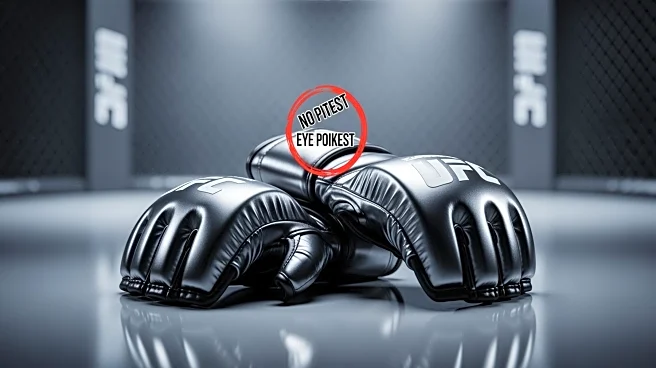What's Happening?
Tom Aspinall's first heavyweight title defense at UFC 321 ended in a no-contest after Ciryl Gane accidentally poked him in both eyes during the first round. Despite taking five minutes to recover, Aspinall was unable to see out of his right eye, leading
referee Jason Herzog to call off the fight. The incident occurred in Abu Dhabi, and Aspinall later shared footage of his hospital visit and eye exams on social media. The fight's abrupt end drew boos from fans at the Etihad Arena, and Aspinall expressed frustration over the situation, questioning Gane's actions. His coach and father, Andy Aspinall, voiced concerns about the potential long-term impact on his son's health, referencing past incidents where fighters suffered severe eye injuries.
Why It's Important?
The incident highlights ongoing concerns about fighter safety in mixed martial arts, particularly regarding eye pokes, which are illegal but can have serious consequences. Aspinall's inability to continue the fight raises questions about the adequacy of current rules and enforcement regarding eye pokes. The situation also underscores the pressure fighters face to continue despite injuries, as seen in the mixed reactions from fans and commentators. The outcome of the fight affects Aspinall's career trajectory and the heavyweight division's dynamics, potentially influencing future title matchups and fighter strategies.
What's Next?
Aspinal's next steps involve further medical evaluation to assess the extent of his eye injuries. The UFC may face calls to review and possibly tighten regulations around eye pokes to prevent similar incidents. Aspinall's decision to stop the fight could lead to discussions within the MMA community about fighter safety and the balance between competitiveness and health. Stakeholders, including UFC officials and fighters, may advocate for changes to ensure better protection for athletes in the octagon.
Beyond the Headlines
The incident raises ethical questions about the responsibility of fighters and referees in ensuring safety during matches. It also highlights the cultural aspect of MMA, where toughness and resilience are highly valued, sometimes at the expense of health. The long-term implications for Aspinall's career and health remain uncertain, as eye injuries can have lasting effects. The situation may prompt broader discussions about the role of medical professionals in assessing fighter readiness and the potential need for more stringent health checks.
















